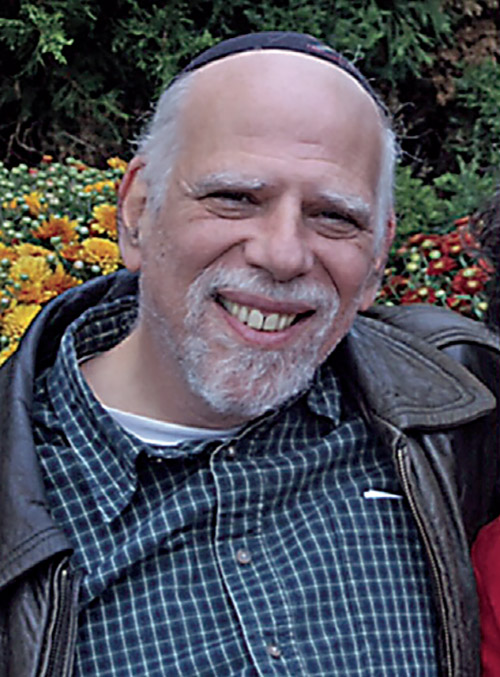
Rabbi Sam Frankel is passionate about his work. After the 9/11 terror attacks, Rabbi Frankel shifted the focus of his counseling services and public speaking to the theory and practice of mindfulness.
The idea of mindfulness is not new, but it has certainly gotten a great deal more attention in recent years. While mindfulness has an abridged definition of “staying in the moment or focusing on the present,” it is now understood to hold a much larger conceptual significance. It is commingled with a wide spectrum of professional and personal development practices, as well as social values and philosophies. Rabbi Frankel noted that mindfulness is historically tied closely with Jewish spirituality.
While one often sees or hears about mindfulness in counseling and cognitive function enhancement programs, it is also used in yoga and meditation practice as well as first-responder training and hospice care. Rabbi Frankel expanded on the understanding of mindful focus when discussing the trauma produced by events like 9/11; he emphasized the idea of “separating the experience of past from the reality of the present.” Frankel added to this process the importance of learning to become non-judgmental about the experience and especially one’s response to it.
Rabbi Frankel discussed supporting a non-judgmental approach in trauma treatment. He explained that even the name of PTSD (post-traumatic stress disorder) is referred to as a “disorder.” However, many professionals express that, rather than being a disorder; it is actually a normal response to a very abnormal set of circumstances. By redefining the challenge as PTS (post-traumatic stress), it can relieve victims of feeling or being judged, and can be essential in the realignment of focus to the present.
By learning to raise and master the awareness of one’s physical state in one’s current environment, it is possible to then use the past as a critical and valuable learning tool that can benefit and explain the present. The idea, however, is to learn to use this information while not being trapped by, or in, it. While the physical component of mindful awareness is often the lesser-known concept, it is essential as well. Frankel explained that engaging one’s expanded mindful awareness can help objectify and deconstruct (or neutralize) the past and begin the process of replacing or repairing it with constructively meaningful perspective. He added that some also refer to this process as re-framing.
Frankel emphasized, however, that the proactive approach is optimal, using training and preparation rather than damage control and “picking up the pieces.”
Rabbi Frankel also discussed his concern about the emerging and potentially detrimental effects of electronic devices and screen time. Thinking ahead, he expressed a fair amount of concern that, unchecked, 10 or more years into the future we could be seeing widespread and negative effects of the over-use of electronic devices on children and adults equally. While technology advances have brought amazing and highly beneficial features to medicine, science and communication, the impact of misuse and overuse are already significantly disruptive to healthy social interaction, learning, brain function, and even physiological and physical function, he said.
Aside from the addictive impact, heavy users have lost the ability to distinguish between what is important and what is truly urgent. Many users have come to treat any and every electronic communication as urgent and requiring immediate attention or action. Frankel is troubled by how this approach disrupts mindful attention to matters at hand, and diminishes, dilutes and diverts attention. Academic and work quality are frequent victims, and interpersonal relationships are often reduced in favor of a nearly non-stop flow of electronic information, frequently of greatly lesser import.
Frankel’s mission is to enlighten and educate. Every social, educational and occupational venue is at risk. [These are] environments ripe for recognizing the symptoms of renegade electronic and screen time use,” he said. These areas are where one can begin to learn interventional skills and self-management practices via mindful awareness. Frankel previously focused mainly on students and adults with his mindfulness training and techniques, and more recently has adapted his programs to include children as young as 2 or 3.
Rabbi Frankel is scheduled to present a staff training program on mindful practices in Jewish education at Ma’ayanot on November 11. He will cover its benefits, techniques, tools and practices—all with special focus on the classroom and school environment.
Reach Rabbi Sam Frankel at 201-906-8473 or [email protected].













